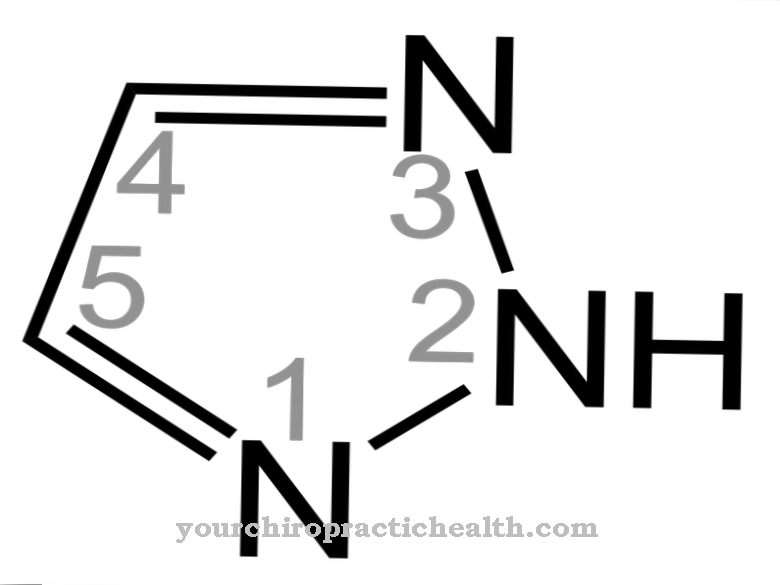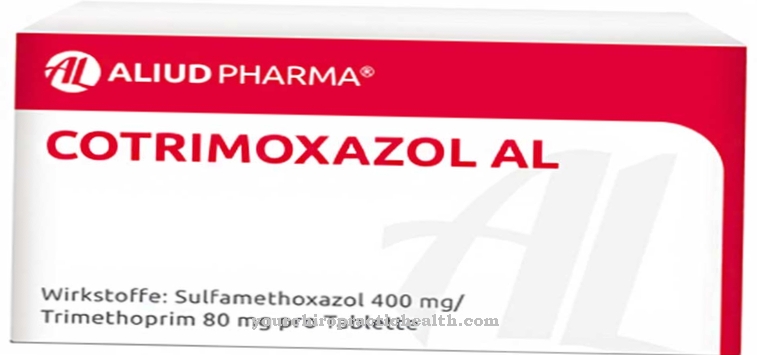Simeticon belongs to the Carminativa family. The remedy is used against flatulence and bloating.
What is simeticon?
![]()
Simeticon is an active ingredient that comes from the carminative group. These are medicines for flatulence. The orally administered preparation is used to treat flatulence, bloating and abdominal pain, which are caused by an excess of gases in the gastrointestinal area. Simeticon is used to dissolve larger accumulations of gas in the gastrointestinal tract. Another area of application for Simeticon is poisoning with detergents. In addition, the active ingredient can be administered in preparation for imaging examinations of the stomach and intestines.
Simeticon was approved in the USA in 1952. The agent is classified as reliable and safe because it has a purely physical effect. It can even be used safely with pregnant women and children. A large number of simeticon preparations are on the market today. Different doses or combinations are offered. Simeticon is also available in Germany.
Pharmacological effect
Many people suffer from repeated flatulence. The cause of this is often the consumption of carbonated beverages or gas that causes gas. These lead to the build-up of gases in the human intestine. However, excess air can also result from ingestion of air or food intolerance. This is often noticeable in the affected people through feelings of tension, bloating, flatulence and pain in the abdomen. The juices of the stomach and intestines as well as the food pulp foam up, which leads to the formation of fine-bubble foam. The gases are located within the vesicles and therefore cannot easily escape or be absorbed by the lining of the intestine.
At this point, the active ingredient simeticon intervenes. Similar to Dimeticon, the agent is composed of polysiloxane. It is an organic long-chain silicone compound. Simeticon does not enter into any chemical reactions within the body and has a purely physical effect. Simeticon has a defoaming effect and reduces the surface tension of the foam. In this way, the enclosed gas bubbles can disintegrate. After the gases are released, they are absorbed through the intestinal wall. Alternatively, they can also move through bowel movements to the anus, where they are eliminated from the body.
Simeticon is taken orally. Since the effect of the agent is purely physical, it cannot get into the patient's blood through the intestinal mucosa. Ultimately, this leads to unchanged excretion of the active ingredient.
Medical application & use
Simeticon is used to treat gastrointestinal ailments caused by gas. The preparation is usually given in the form of a soft capsule or chewable tablet. It is also possible to take it through drops. The defoaming agent is administered either during or after meals or before going to bed. The recommended dose for gastrointestinal complaints is between 50 and 250 milligrams of simeticon.
Simeticon can also be used as an antidote for detergent poisoning. Although detergents are mostly non-toxic, it is possible that the stomach is filled with foam by accidentally swallowed detergent. In addition, the foam can move along the esophagus in the upper direction, penetrate to the respiratory region and, in the worst case, cause the affected person to suffocate. Simeticon counteracts this risk by ensuring that the detergent cannot foam up. The patient receives around 800 milligrams of the defoamer. However, this dosage is lower in babies and children.
The use of simeticon is also considered sensible in imaging examination procedures such as an X-ray examination, gastrointestinal examination or ultrasound examination. There is a risk that the image quality of the recordings will be adversely affected by foam and gas bubbles, which in turn can affect the diagnosis. To ensure that the examination runs smoothly, simeticon is often administered in advance. For this purpose, the patient receives 100 milligrams of simeticon three times the day before the examination. Immediately before the examination, another 100 milligrams are given.
You can find your medication here
➔ Medicines against flatulence and digestive problemsRisks & side effects
Simeticon has no known major side effects. However, in some dosage forms of the agent there are auxiliary substances, which in turn can trigger undesirable side effects. This primarily includes the preservative potassium sorbate. As a rule, adverse effects only occur at higher dosages. If diabetics take chewable tablets, they need to watch out for added sugar. In the case of high blood pressure, too, it makes sense to pay attention to the composition of the drug.
Simeticon must not be used if the patient is hypersensitive to the drug. Even in the case of an intestinal obstruction, the drug must not be administered.
Interactions with other drugs are rarely seen with Simeticon. They come about due to the reduction in surface tension by the defoamer. For this reason, it is advisable to avoid the simultaneous use of preparations such as the anticonvulsant carbamazepine, the viral agent ribavirin, the anticoagulant warfarin and the cardiac drug digoxin.
Basically, however, Simeticon is considered to be well tolerated. If the intake is not longer than three days, the defoaming agent can be taken safely even by pregnant and breastfeeding women.







-eisenmangelanmie.jpg)



















